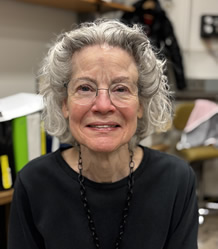
As part of the Auditory Physiology Laboratory, Mary Ann Cheatham has engaged in the study of cochlear nonlinearities and their origins. This investigation provides a foundation for further studies using the mouse in auditory research. Given that mice and humans carry several homologous genes for hereditary deafness, mice provide an important animal model for studying hearing loss of genetic origin, which affects at least 1 in 2000 births. In order to investigate the effect of targeted mutations on the development and maintenance of auditory function, procedures were devised for use with small animals. Because of the several mutagenesis programs now established worldwide, the numbers of genes associated with the inner ear will increase rapidly, thereby providing a genetic approach to the study of cochlear physiology. Our current focus is on the processes underlying cochlear amplification and how they are modulated by the central nervous system via efferent innervation from the medial superior olivary complex.
